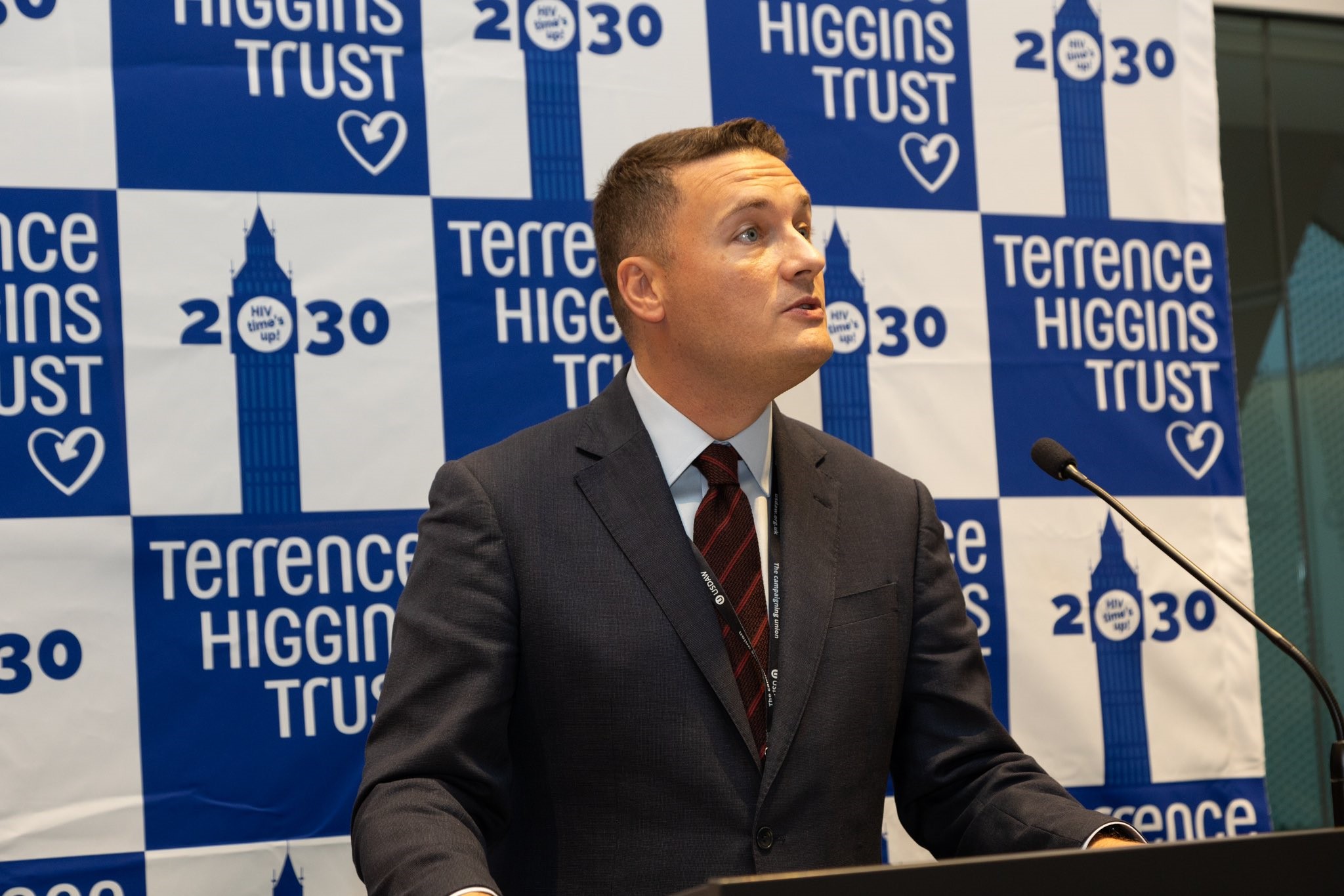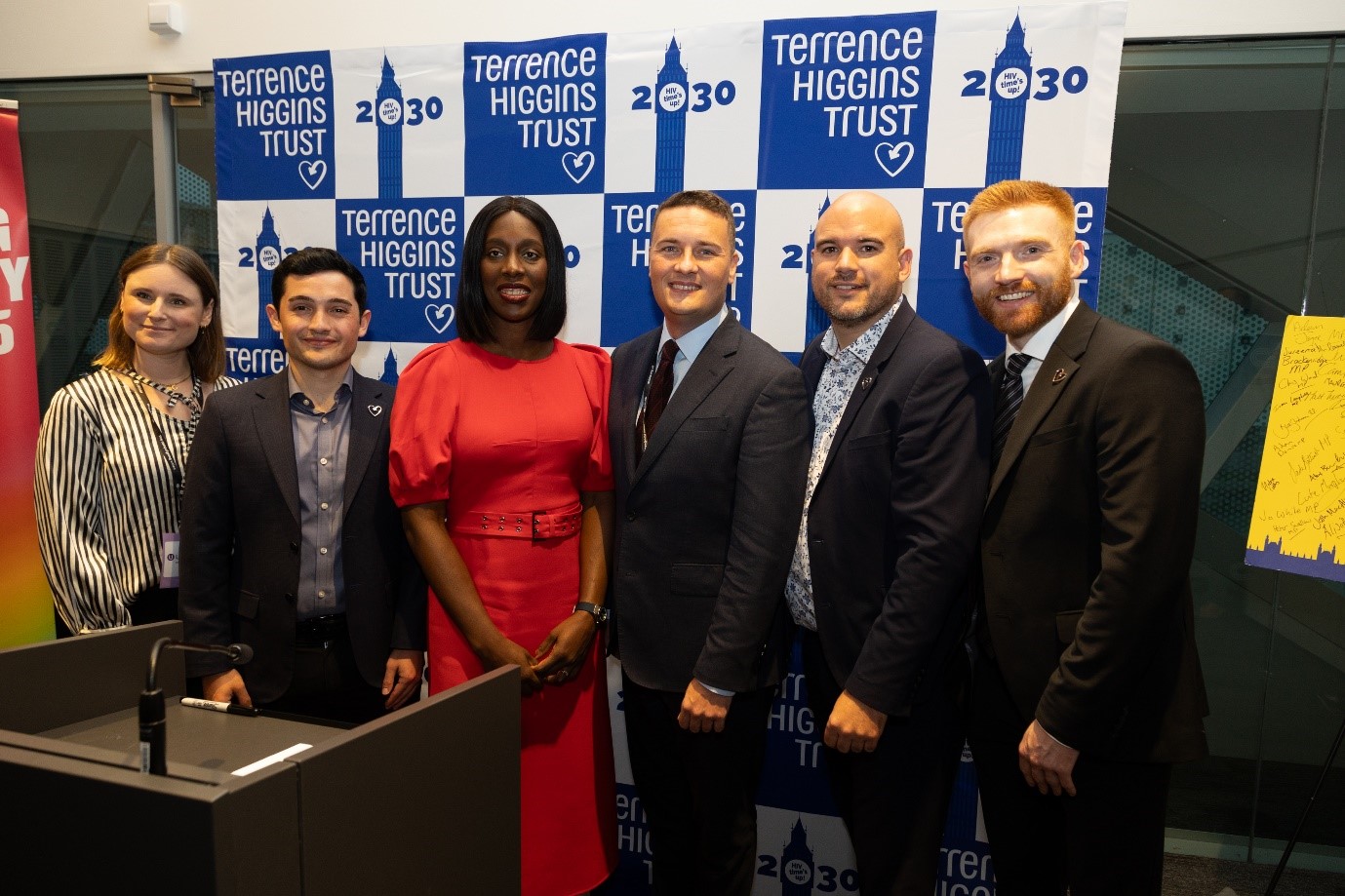
It is absolutely great to be here with all of you this evening, especially as the first openly gay Secretary of State for Health and Social Care.
It still feels quite surreal, and at points emotional, when people describe you as the ‘Cabinet Minister in the room’. We are not the Shadow Ministers anymore and we are not going back either.
And also, just to be here and say, before getting to the substance of the issue, a thank you to Joe and to the rest of the LGBT+ Labour Committee. The leadership you show; the advocacy you do on behalf of our community and every part of our community; the tough messages you deliver to us, to me; and also, for the hard work you did during the general election campaign. You pounded pavements across the country to send a record number of LGBT Labour MPs to Parliament. We would not be here without your hard work and effort and its thanks to you that we are now in the position to change lives for the better in our community. So thank you.
It is because of that hard work that we are now in a position to really make a difference and I am proud that at such an early stage we have been able to show how serious we are about this agenda on sexual health. Last week, I signed off on an order of 150,000 more mpox vaccines to be rolled out in sexual health services for gay and bisexual men, and others who might be affected. No more shirking responsibility. No more ignoring the advice of the scientists. This government is going to walk the walk on prevention.
It is because we believe in collectivism and because we care about people other than ourselves that, at the same time as showing leadership at home, we are also going to show leadership internationally. This will never be a government or a country that walks by on the other side while there are children that are dying of mpox in Central Africa. We will be there to support them and fight for their survival.
We have got so much to learn from the HIV response. And we have come so far. When Terry Higgins died, his boyfriend Rupert was shut out of his care. Terry’s doctors refused to even tell Rupert what had killed him because their love was not recognised or accepted. When he bumped into Terry’s doctor a year later, he just said “I’m surprised you’re not dead yet too.” Rupert didn’t just live - he became a leader of one of the most formidable movements for better treatment and better care in the history of our health service. It is thanks to them that we can now stop this virus in its tracks.
And we are in a position to make a real difference; a historic difference. As Richard Angell outlined in his incredibly powerful speech, we have the chance to stop the spread of a virus without a cure or without a vaccine. This has never before been done in the history of the world and we will do it on HIV.
As you are all very quick to remind me, I was a member of the HIV Commission that wrote the roadmap to how we end new HIV cases in England by 2030. But I am under no illusion that it’s going to be easy and I know that we’re not on track. The goal of ending this epidemic and being the first country in the world to do so falls to our generation. We cannot fail.
We have inherited a health system that is broken. Sexual health services are under immense strain, there are months-long waiting lists to get on PrEP and 14,000 people living with diagnosed HIV are not accessing care.
Our new HIV Action Plan will be a plan to get us back on track. I want it to be the first great example of how we make the move from sickness to prevention:
- We will stop treating PrEP like it’s a specialist medication that’s only for gay men and can only be accessed through specialist clinics.
- We will make sure that HIV testing becomes routine across our health service – and that we take inspiration from the power of that ‘opt-out’ approach in A&Es in other services and for other conditions.
- And we will take action on this quiet crisis of people who are diagnosed with HIV but not accessing life-saving treatment. Including tackling the stigma, discrimination and inequalities that hold people back from getting care.
It is not lost on me that 76 years ago, the Empire Windrush arrived at the same time as the creation of our National Health Service and it was that generation, and their children, and their grandchildren, now even their great grandchildren, who have been part of building the greatest institution this country has ever built. And yet, at the same time as when other organisations, other employers, talk about the challenges of the talent pipeline, the excuses for the lack of diversity at board levels or executive levels; or the lack of provision for Black and other minoritised communities. The NHS does not have the same excuse.
I will ask hard questions as to how and why it is, even when we are doing vital and lifesaving work – whether it is action on mpox or action on HIV or indeed the roll-out of the lifesaving COVID vaccination – we find that the NHS has a deep relationship with some parts of the country but not all parts of the country. The NHS is a caring organisation, but it is not immune from the wider prejudice and discrimination in wider society and we have got to do better to genuinely tackle health inequalities for all communities in our country. And we will do that.
And it is because diversity and inclusion and representation matters, that we will be a better government. I am so proud to sit around the Cabinet table with a government that is more state educated than the country, with people from a range of backgrounds and perspectives reflected at all parts of our parliamentary party and indeed the whole part of our labour movement. And it is because of that that we will be a government for all communities; that we will tackle the deep injustices and inequalities that hold our country back.
And I know that when it comes to tackling HIV and meeting our mission to end new transmissions by 2030, THT and LGBT Labour won’t let me rest, and quite rightly so. We owe it to everyone we have lost and everyone living well with HIV today to make it happen. Because we can end new HIV cases. And so we will end new HIV cases. Thank you.


